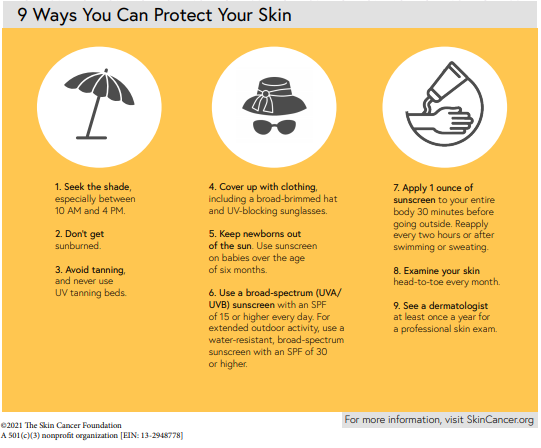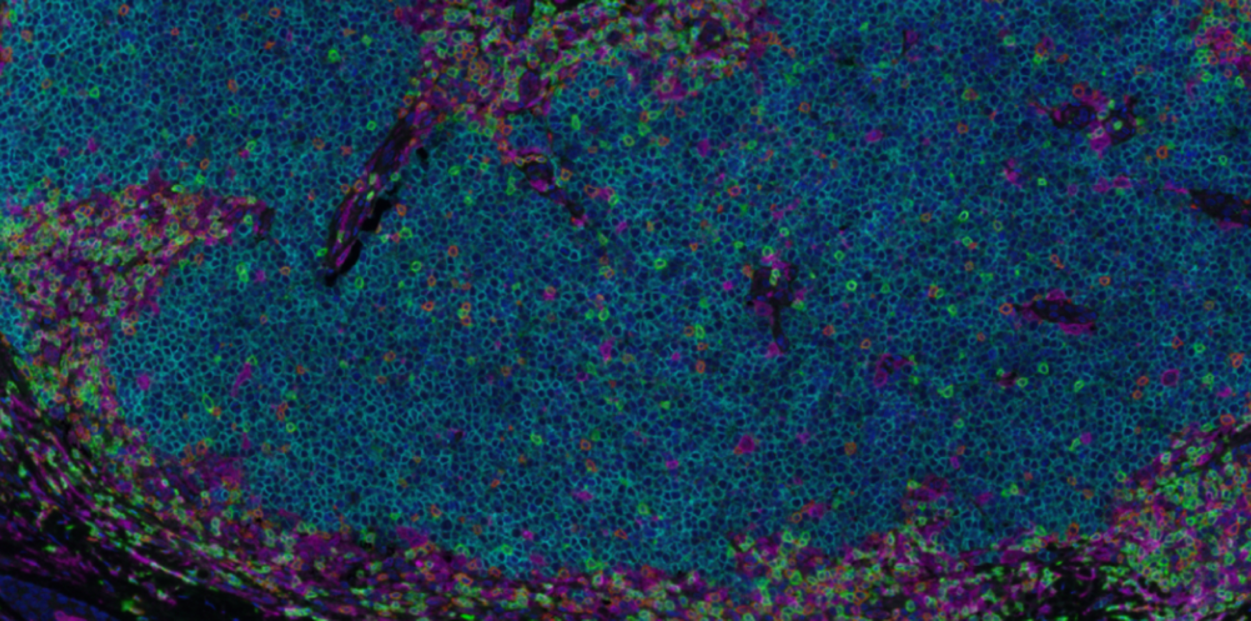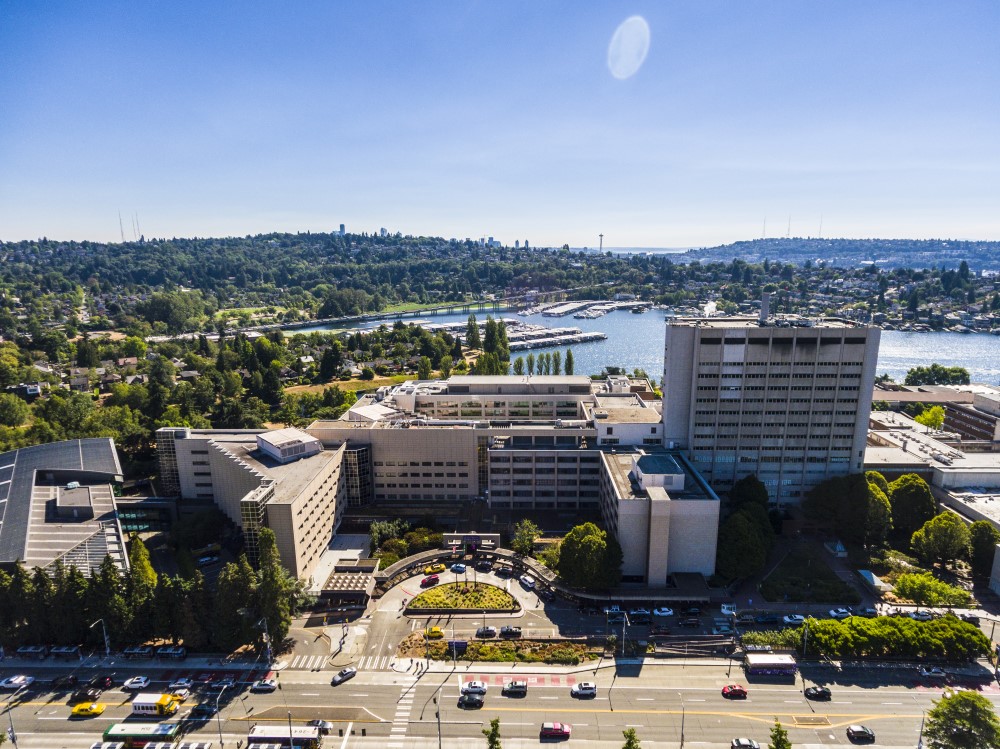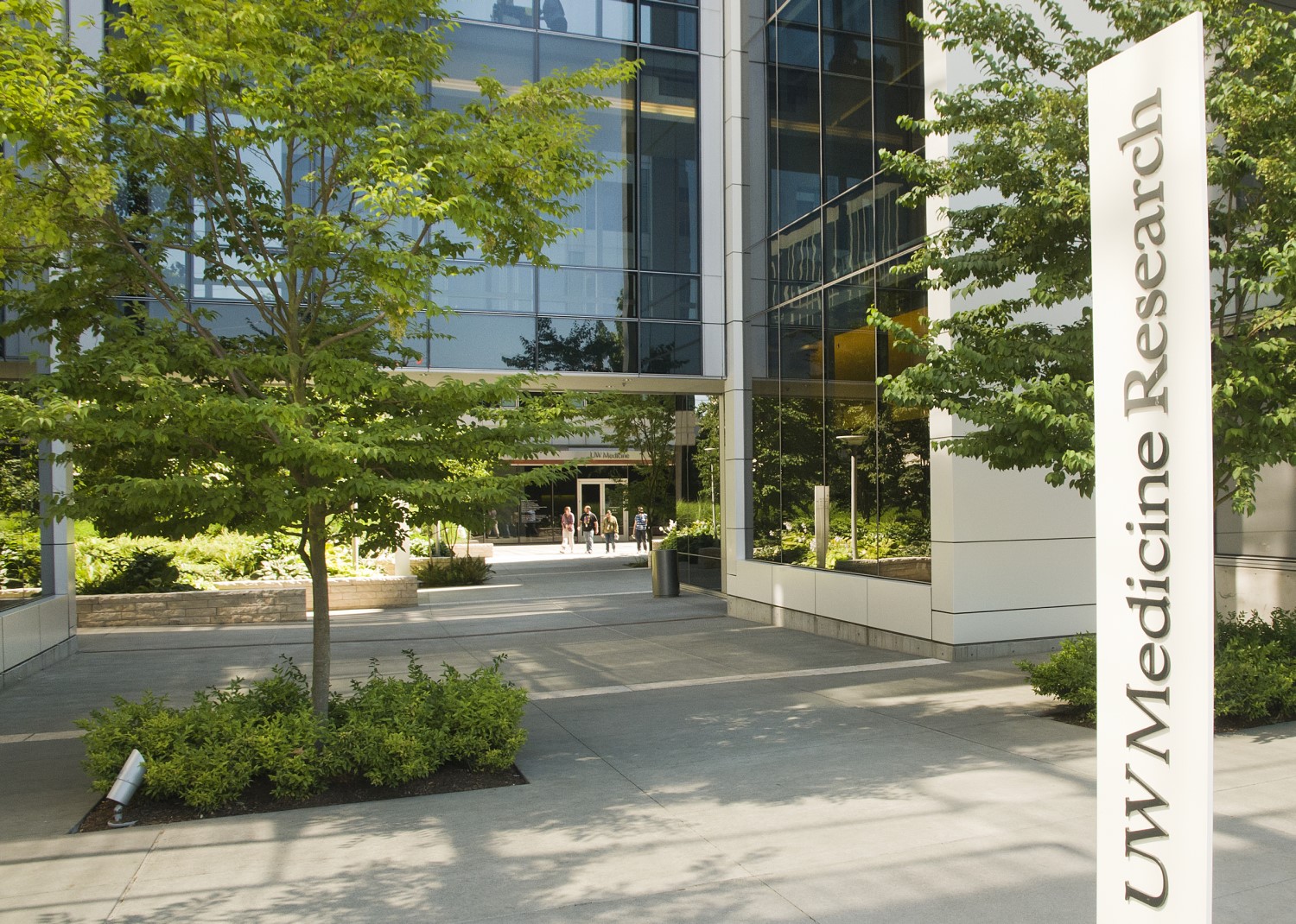May is National Skin Cancer Awareness Month
During the Month of May, we are taking the opportunity to share information, and celebrate advances in the prevention, diagnosis and management of skin cancer.
Skin cancer is the most common form of cancer in the US with 90 percent of nonmelanoma skin cancers and 85 percent of melanoma cases associated with exposure to ultraviolet radiation from the sun.
The Skin Cancer Foundation, among other advocacy groups and professional organizations, works to raise awareness for skin cancer risks and prevention by sharing facts and tips from dermatologists. Skin Cancer Foundation recommendations for reducing your risk of skin cancer include:

Sun safe habits are essential for protection against the 4 types of skin cancer. Basal cell carcinoma, squamous cell carcinoma and melanoma are the three most common types of skin cancer, while Merkel cell carcinoma (MCC), the fourth type of skin cancer is relatively rare.
Merkel cell carcinoma research
MCC is the most aggressive form of skin cancer with a high risk for returning (recurring) and spreading (metastasizing), often within two to three years after initial diagnosis.
UW Dermatology professor and Division Head Dr. Paul Nghiem is a national expert in MCC and Principle Investigator of the Nghiem Laboratory, a group of clinicians and scientists who investigate new techniques for the prevention and treatment of MCC.
The Nghiem Lab is responsible for outlining many of the current guidelines for MCC clinical care. Most recently, research from the Lab has led to the recommendation that PET scans be included at baseline diagnosis for MCC in order to appropriately classify the cancer stage, and that more localized surgical excision of MCC is effective at reducing recurrence compared to the standard approach of a larger surgical area.
Caffeine and skin cancer
In the prevention of skin cancer, safe sun practices are essential and widely known. However, a lesser known protective factor is consumption of caffeine. Dr. Masaoki Kawasumi and his lab team are leaders in researching the connection between caffeine intake and protection against skin cancer.
Multiple human epidemiological studies have demonstrated that caffeinated coffee intake is associated with decreased risks of developing nonmelanoma skin cancer and melanoma. Each daily cup of caffeinated coffee is associated with 5% reduced risk of skin cancer. The cancer-preventive effect of caffeinated coffee is dose-dependent. People who drink 6 or more cups of caffeinated coffee per day showed ~30% reduced risk of skin cancer. Importantly, decaffeinated coffee has no such effects, indicating that caffeine is an active constituent for skin cancer prevention.
Dr. Kawasumi and his lab are investigating this and other biological pathways to better inform the guidelines for further reducing the incidence of skin cancer.
“There has been exciting progress in the past year in our understanding and the treatment of nearly all types of skin cancer. At UW, we are proud to be a part of a vibrant community that is helping to improve the prevention, early detection and treatment of skin cancer--a problem that will affect a very large proportion of adults during their lives” – Dr. Paul Nghiem










